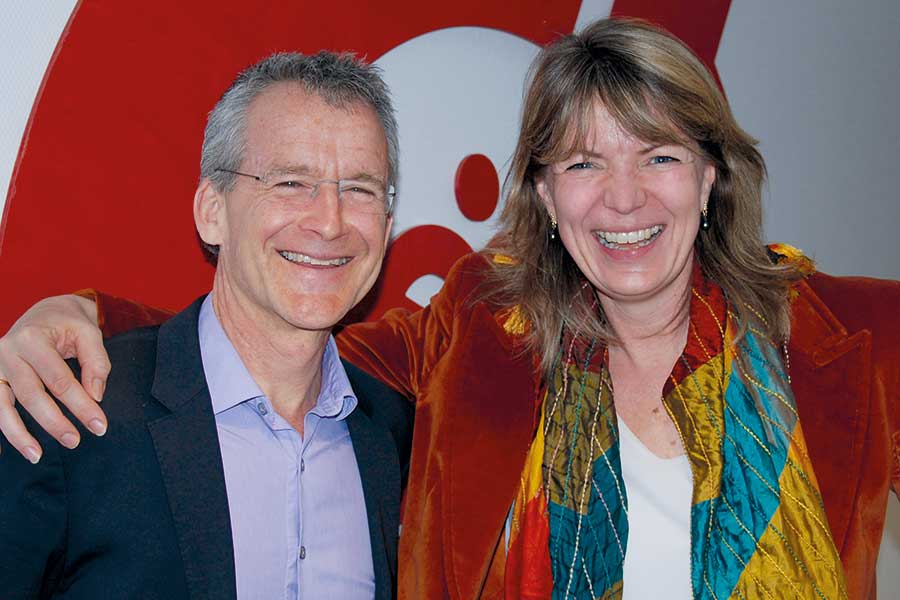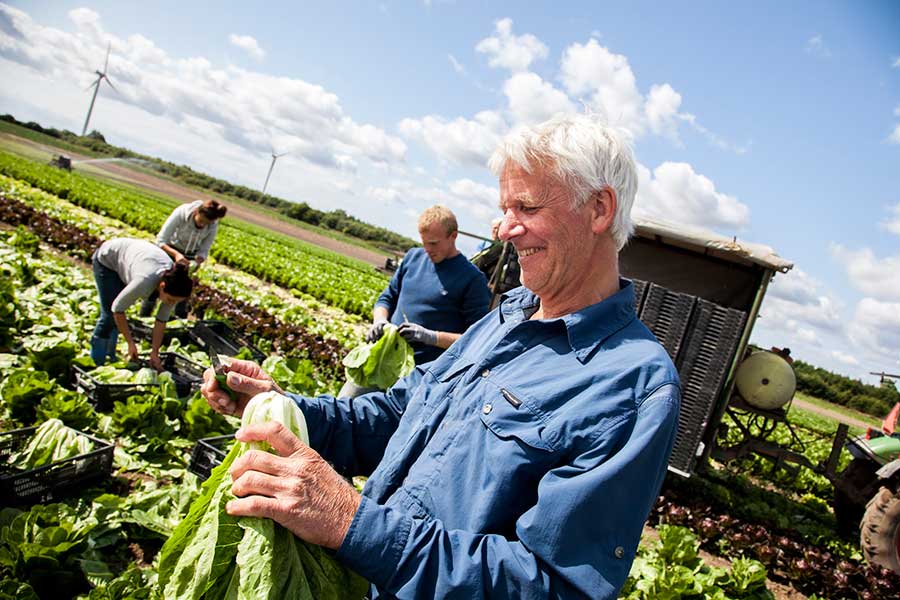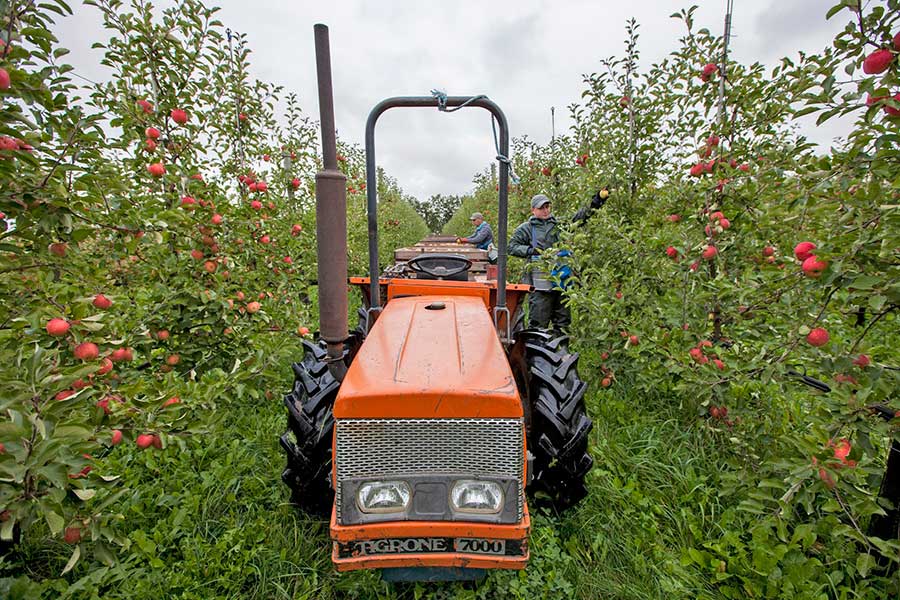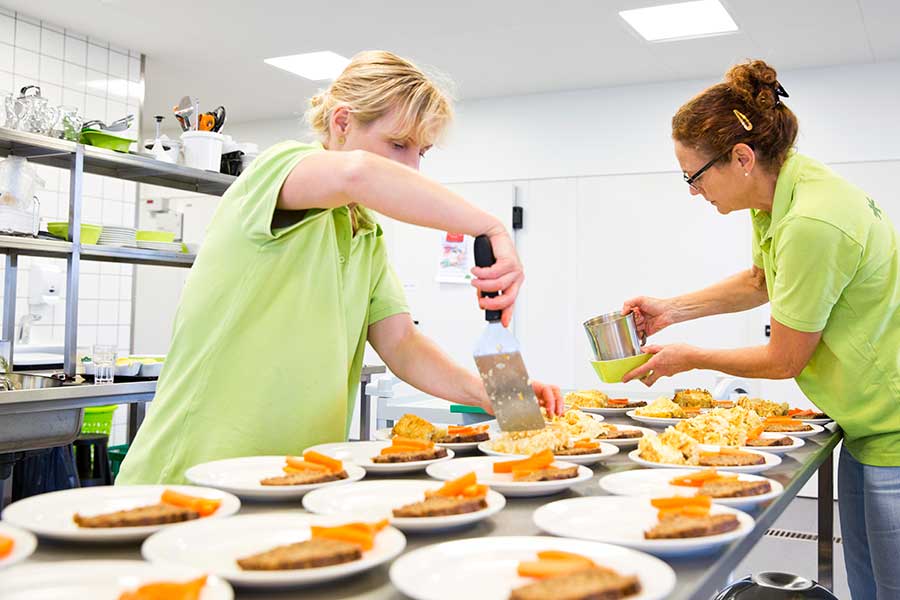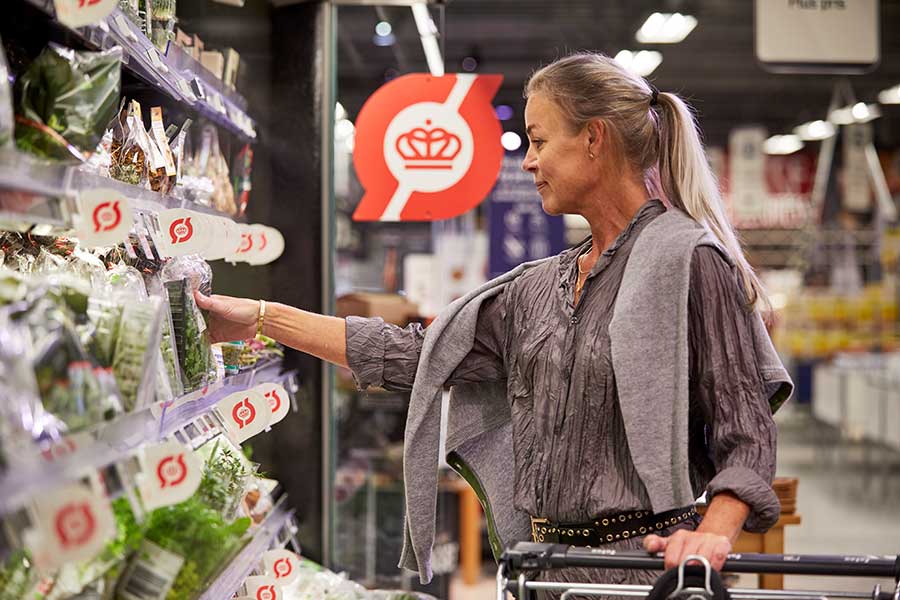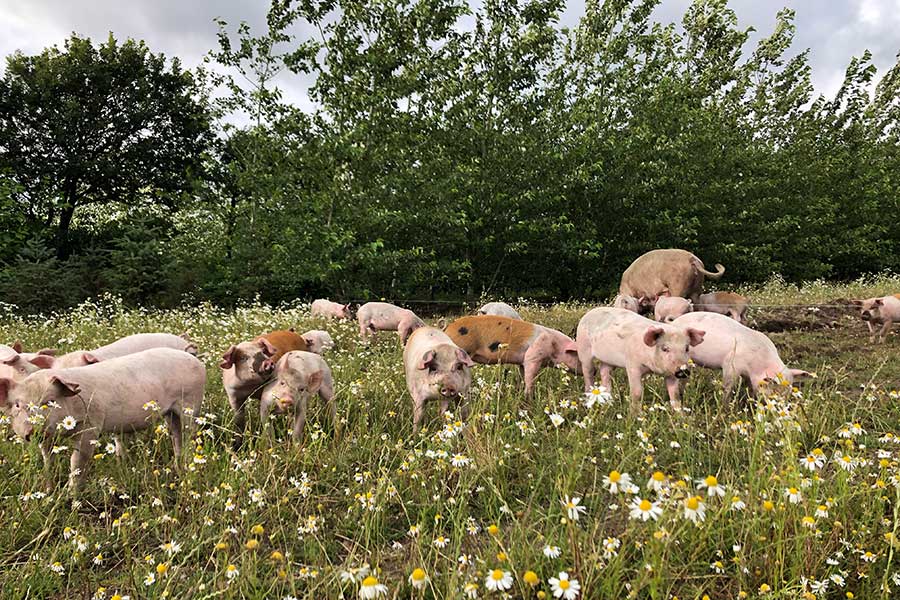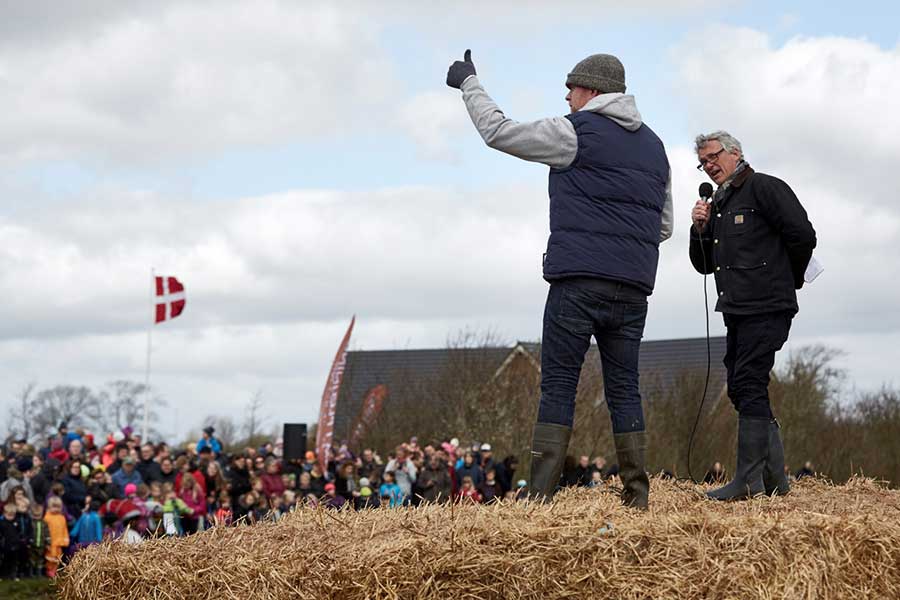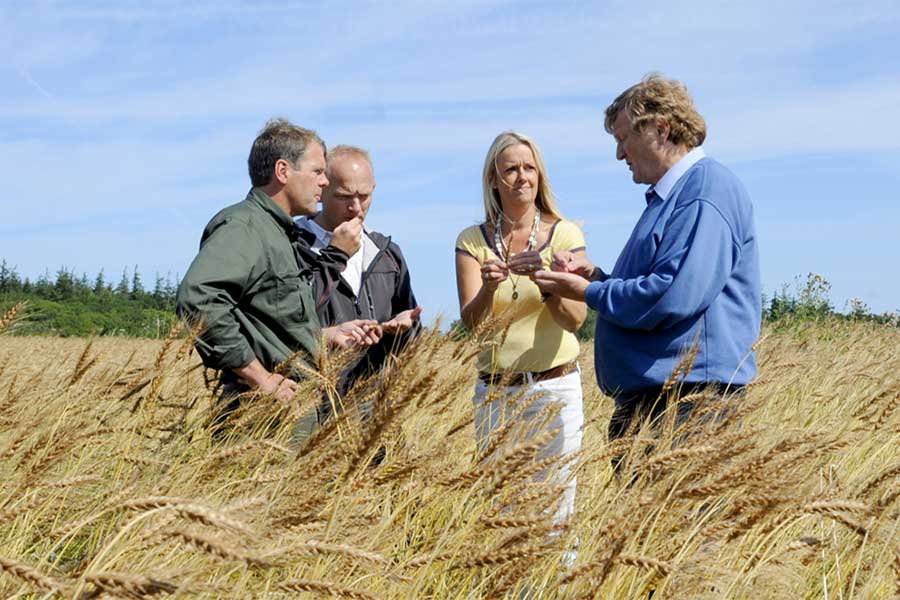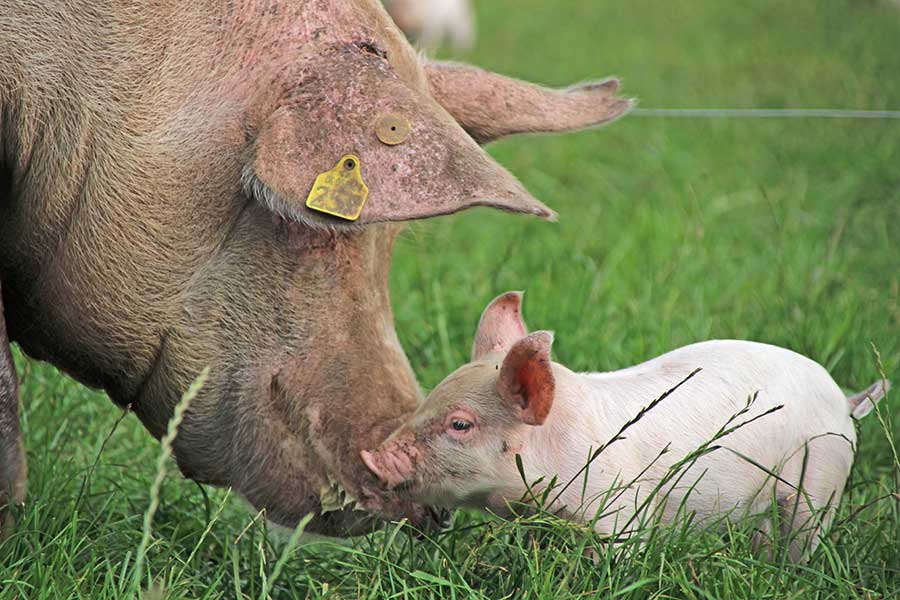Paul Holmbeck and Helle Borup Friberg from Denmark
OWA Grand Prix-Winners 2021
ORGANIC DENMARK PAVES THE WAY FOR GOING ALL THE WAY
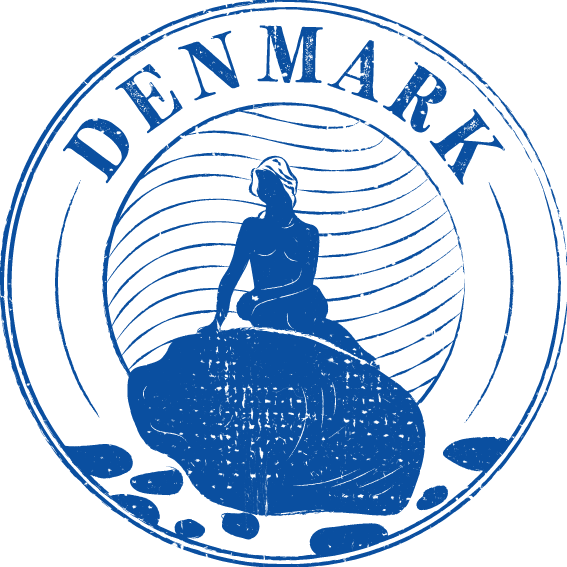
Sharing knowledge on food quality
In 1999, Paul became director and served the next 18 years at the helm of Organic Denmark. He established ”The Organic House” as the home for eight organic NGOs, which merged into Organic Denmark and that united Denmark’s organic farmers, food companies, consumers, food professionals and chefs. A wide range of stakeholders give Paul credit for having built what well could be considered the world's leading NGO in the organic sector – and certainly the most successful.
A key strategy for expanding the rapidly growing Danish organic market targets public procurement. A national goal of 60 % organic food in all public kitchens, financing for the education of kitchen workers and a mobilization of farmers and food companies created transformative energy. Today, child care centers, schools, ministries, hospitals and military barracks are all serving organic. The capital city of Copenhagen now serves 80,000 public meals daily with 86 % organic ingredients! The cost issue is not preventing large-scale conversion to organic as the organic premium is covered through the reduction of food wastes and a reduction in meat serving sizes in more vegetable-rich meals (a change that was accepted by the meat-loving Danes).
A key strategy for expanding the rapidly growing Danish organic market targets public procurement. A national goal of 60 % organic food in all public kitchens, financing for the education of kitchen workers and a mobilization of farmers and food companies created transformative energy. Today, child care centers, schools, ministries, hospitals and military barracks are all serving organic. The capital city of Copenhagen now serves 80,000 public meals daily with 86 % organic ingredients! The cost issue is not preventing large-scale conversion to organic as the organic premium is covered through the reduction of food wastes and a reduction in meat serving sizes in more vegetable-rich meals (a change that was accepted by the meat-loving Danes).
Breakthroughs in the gastronomic sector came with a certification program
awarding restaurants with organic cuisine logos in bronze, silver and gold that
represent shares of 30, 60 and 90 % organic ingredients. Over 3,400 kitchens
have organic medals nowaday! A number of restaurants with Michelin stars
are also gold „Ø“ holders. Michelin star chef Christian Puglisi values his organic
gold medal highly: „I would rather give back my Michelin star than my golden
organic kitchen label “.
Another unique feature is the role Organic Denmark has played in developing the organic market to the highest level in the world. This has been done through close strategic partnerships with all retail chains in Denmark that increased the visibility of organic products, led to an expansion of organic product assortments and facilitated the communication to consumers with respect to “why organic is important”.
Today, organic food is available everywhere in Denmark, for everyone at affordable prices. More than half of the Danes buy organic food every week and the market share has grown in 15 years from 3.2 % to over 12 % - a world record. Baby food tops the organic market share list with 95 %, followed by oats (52 %), yoghurt (48 %), carrots (42 %), eggs (33 %) and milk (32 %). Another world record: the Danes have annual per capita spending on organic food totalling 344 €. With the current growth rates, organics are already mainstream and are on the way to conquer the entire market.
Another unique feature is the role Organic Denmark has played in developing the organic market to the highest level in the world. This has been done through close strategic partnerships with all retail chains in Denmark that increased the visibility of organic products, led to an expansion of organic product assortments and facilitated the communication to consumers with respect to “why organic is important”.
Today, organic food is available everywhere in Denmark, for everyone at affordable prices. More than half of the Danes buy organic food every week and the market share has grown in 15 years from 3.2 % to over 12 % - a world record. Baby food tops the organic market share list with 95 %, followed by oats (52 %), yoghurt (48 %), carrots (42 %), eggs (33 %) and milk (32 %). Another world record: the Danes have annual per capita spending on organic food totalling 344 €. With the current growth rates, organics are already mainstream and are on the way to conquer the entire market.
Lobby work for research and innovative funding, often with revenue from a pesticide tax, created both the Fund for Organic Agriculture and the Danish International Centre for Research on Organic Food Systems that helped to develop organic farming.
Scaling-up in size without compromise on organic standards, means that in Denmark one can find dairy farms with up to 700 cows – with all the cows grazing! The Hestbjerg pig farm converted to organic already 25 years ago and has taken the pigs back to where they come from – literally to the forest. The 1,500 sows are probably the happiest in Denmark. They give birth to over 30,000 piglets / year that enjoy a happy free-range life. The size of these organic farms is a valuable challenge to the organic mindset that favors the paradigm „Small is beautiful “.
Credit for this Danish success story must be given to many people, to farm advisors, to the 65 employees of Organic Denmark and to many allies. But also, to organic pioneers like Organic Denmark’s President Per Kølster or to Rikke Lundsgaardand and the bold Danish Agricultural Ministers and politicians.
Scaling-up in size without compromise on organic standards, means that in Denmark one can find dairy farms with up to 700 cows – with all the cows grazing! The Hestbjerg pig farm converted to organic already 25 years ago and has taken the pigs back to where they come from – literally to the forest. The 1,500 sows are probably the happiest in Denmark. They give birth to over 30,000 piglets / year that enjoy a happy free-range life. The size of these organic farms is a valuable challenge to the organic mindset that favors the paradigm „Small is beautiful “.
Credit for this Danish success story must be given to many people, to farm advisors, to the 65 employees of Organic Denmark and to many allies. But also, to organic pioneers like Organic Denmark’s President Per Kølster or to Rikke Lundsgaardand and the bold Danish Agricultural Ministers and politicians.
Today, Paul is advising leaders in governments, business and organic NGOs around the world on organic policy and on how to expand the organic sector. In 2017, Helle Borup Friberg took over as CEO of Organic Denmark. Having studied and lived in the USA, Germany and Vietnam she brings new experiences to the job with her international background, her master in business administration, her career in marketing and her experience with partnerships. Helle’s skills and dedication will lead Denmark to the next big goal of achieving 30 % organic consumption and 30 % organic farmland in the next ten years. Moreover, Organic Denmark will help the food sector and the organic farmers to play a lead role in achieving Denmark’s ambitious 70 % CO2 reduction target by 2030.
If they can make it there, we can make it anywhere ... Spreading the success story of this well deserving OWA 2020 Winner offers a cornucopia of inspirations and learnings. Thus, Organic Denmark paves the road to the ultimate vision for mother earth being cultivated 100 % organically.
 www.organicdenmark.com
www.organicdenmark.com
If they can make it there, we can make it anywhere ... Spreading the success story of this well deserving OWA 2020 Winner offers a cornucopia of inspirations and learnings. Thus, Organic Denmark paves the road to the ultimate vision for mother earth being cultivated 100 % organically.



